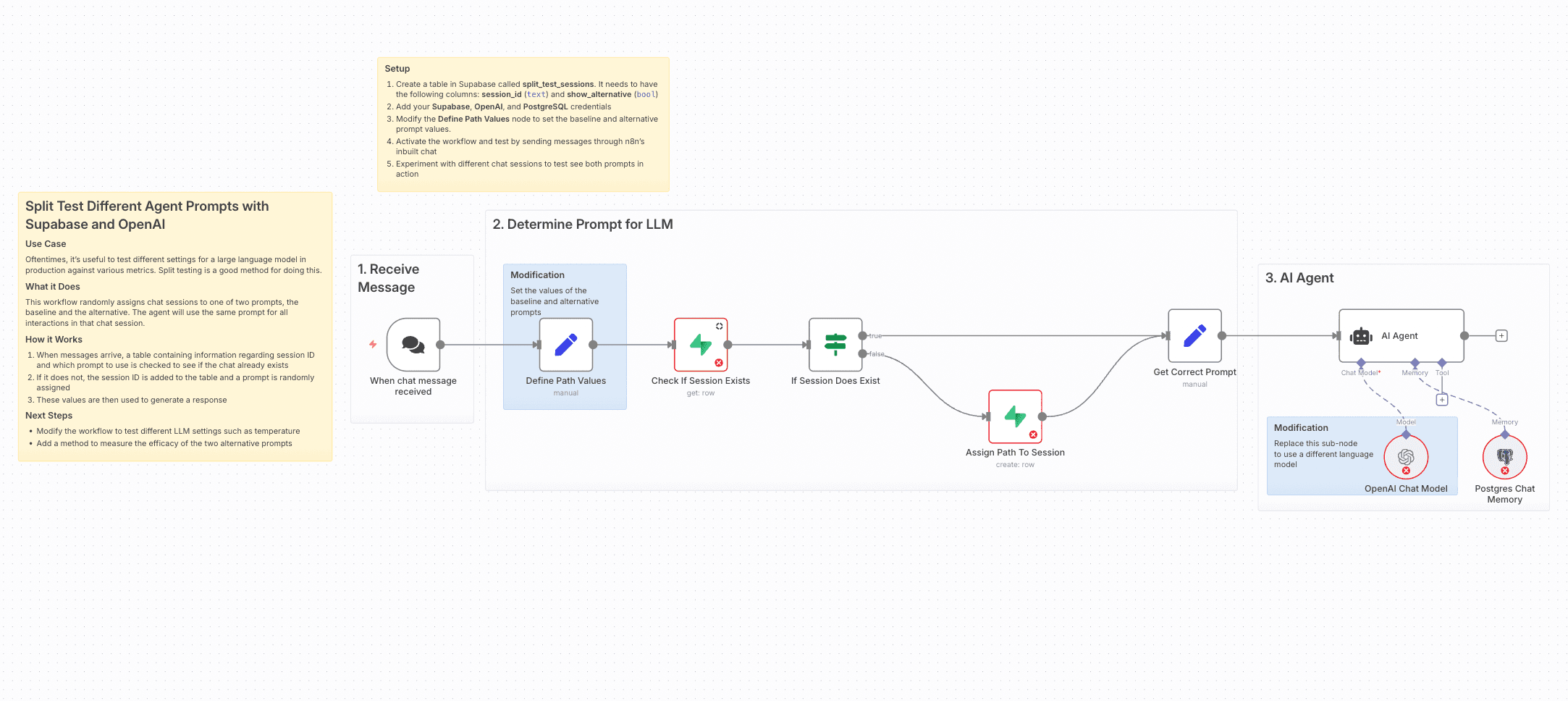Back to Templates

Split Test AI Prompts Using Supabase & Langchain Agent
This workflow allows you to A/B test different prompts for an AI chatbot powered by Langchain and OpenAI. It uses Supabase to persist session state and randomly assigns users to either a baseline or alternative prompt, ensuring consistent prompt usage across the conversation.
🧠 Use Case
Prompt optimization is crucial for maximizing the performance of AI assistants. This workflow helps you run controlled experiments on different prompt versions, giving you a reliable way to compare performance over time.
⚙️ How It Works
- When a message is received, the system checks whether the session already exists in the Supabase table.
- If not, it randomly assigns the session to either the baseline or alternative prompt.
- The selected prompt is passed into a Langchain Agent using the OpenAI Chat Model.
- Postgres is used as chat memory for multi-turn conversation support.
🧪 Features
- Randomized A/B split test per session
- Supabase database for session persistence
- Langchain Agent + OpenAI GPT-4o integration
- PostgreSQL memory for maintaining chat context
- Fully documented with sticky notes
🛠️ Setup Instructions
- Create a Supabase table named
split_test_sessionswith the following columns:session_id(text)show_alternative(boolean)
- Add credentials for:
- Supabase
- OpenAI
- PostgreSQL (for chat memory)
- Modify the "Define Path Values" node to set your baseline and alternative prompts.
- Activate the workflow.
- Send messages to test both prompt paths in action.
🔄 Next Steps
- Add tracking for conversions or feedback scores to compare outcomes.
- Modify the prompt content or model settings (e.g. temperature, model version).
- Expand to multi-variant tests beyond A/B.